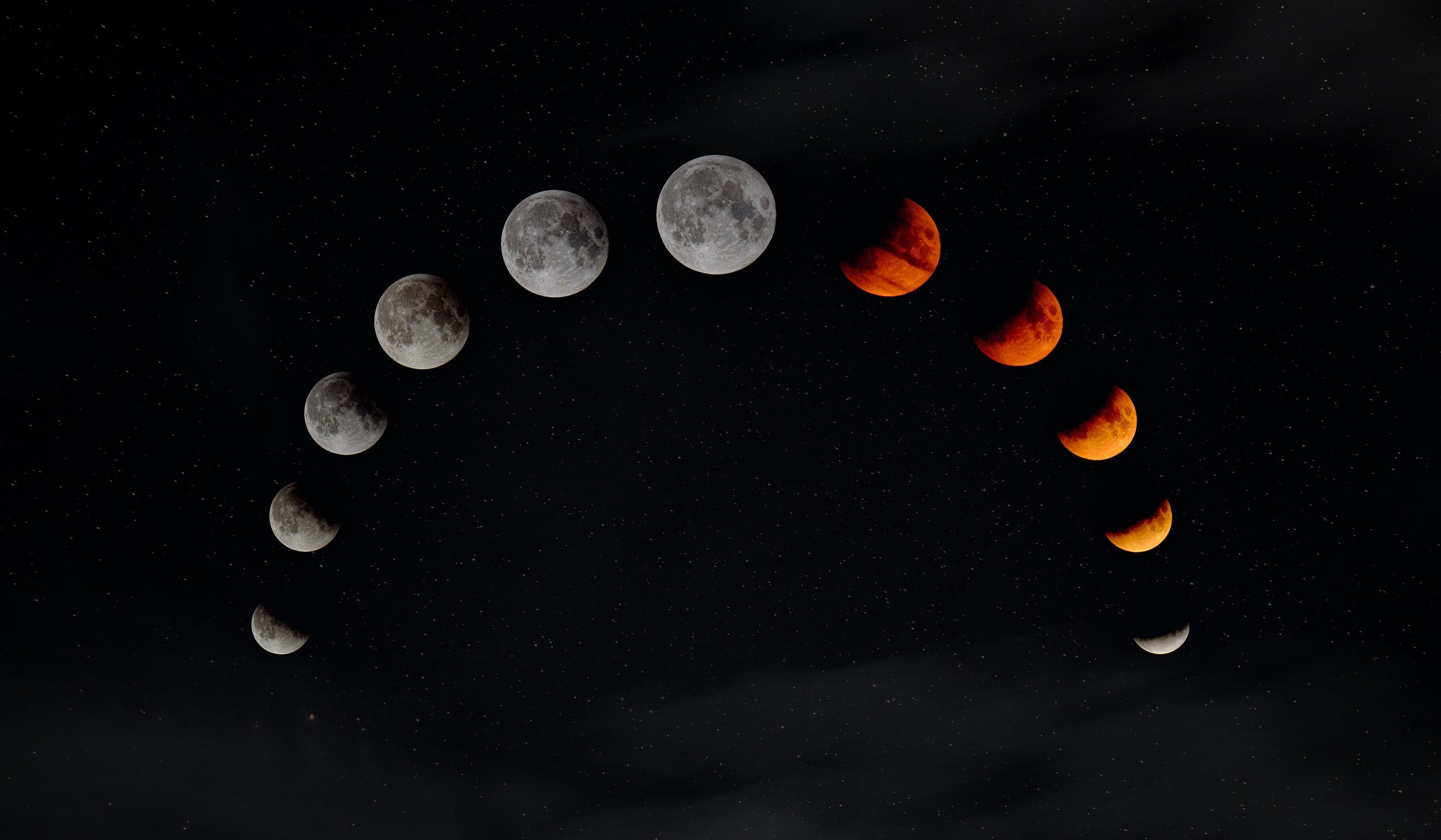
Biblical Calendar

-Rosh Chodesh-
The calendar of HaShem is based on solar lunar cycles. Towards the beginning of the moon‘s cycle, it appears as a thin crescent and is the signal (witness) that a new month has already begun. The moon grows (waxing) until it is full in the middle of the month, and then it begins to lessen (wane) until it cannot be seen (*Molad). It remains invisible for approximately one to two evenings(-0.99 to +0.99).
It is only now that at sunset on the *Molad that the new month begins. The thin crescent moon that appears on the following night is the witness to the beginning of a new biblical month the evening prior.
(*Note - The Molad, (0.00 in illumination) must be prior to sunset in Israel, Israel Standard Time, GMT +2. )
This cycle is a beautiful reflection of the Earth’s beginning being in darkness when Elohim called fourth the light.
“Gen 1-3, 1 In the beginning Elohim created the heaven and the earth. 2 And the earth was without form, and void; and darkness was upon the face of the deep. And the Spirit of Elohim moved upon the face of the waters. 3 And Elohim said, Let there be light: and there was light”.
The entire cycle (orbit) takes exactly 29.5 days, 12 hours, and 793 Chalakim, for one Molad to the next Molad. Since a month needs to consist of complete days, a month is sometimes twenty-nine days long and sometimes thirty. Knowing exactly when the month begins has always been important in our worshipful practice, because the Torah reveals the festivals of HaShem according to the days of the month.
The first day of the month, is called Rosh Chodesh, the Head of the Month, and has semi-festive status.
( Note - Sanctifying The New Moon /Kiddush Levanah, is only recited when the moon is visible and clear. One may not recite Kiddish Levanah before seventy two hours after the Molad (New Moon) has occurred, some authorities delay its recitation until seven full days but not more, after the Molad.)

-Adar-
-Click Calendar To Enlarge-
Numbers 10:10
10 “Also in the day of your gladness and in your appointed feasts, and on the first days of your months, you shall blow the trumpets over your burnt offerings, and over the sacrifices of your peace offerings; and they shall be as a reminder of you before your Elohim. I am יי Adonai your Elohim.”

-This Month-
-
Shabbat (שַׁבָּת also known as "Shabbos" or the "Sabbath") is the centerpiece of a follower of HaShem / Y’shua’s week. Additionally, it is the sign of the covenant between us and HaShem since HaShem gave us His Shabbat Mitzvot at the birth of our nation as a people.
Shabbat is the weekly marker of an obedient life unto HaShem.
The term shomer Shabbat (Shabbat observer) is synonymous with “Obedient Believer” in common parlance.
Shabbat is a day of rest and celebration that begins on Friday at sunset and ends on the following evening after nightfall.
-
The Shabbat before the start of a new month (Rosh Chodesh) is known as Shabbat Mevarchim, “ the Shabbat when we bless. ”
It is on this day, during the synagogue service, we recite a special blessing for the new month and announce the timing of Rosh Chodesh.
-
Rosh Chodesh known as “head of the month” is the monthly holiday that celebrates the arrival of the new moon, marking the start of a new month.
Jewish months, pegged to the cycle of the moon, have either 29 or 30 days. At the end of a 30-day month, the 30th day of the outgoing month and the first day of the new month are Rosh Chodesh. Following a 29-day month, only the first of the new month is Rosh Chodesh.
Like all days on the Jewish calendar, Rosh Chodesh starts at nightfall of the preceding day.
-
Purim is the holiday which commemorates the saving of the Jewish people from Haman, the royal vizier to Persian king Ahasuerus of the Achaemenid Empire who was planning to have all of Persia's Jewish subjects killed, as recounted in the Book of Esther.
Traditions
The observance of Purim begins with a day of fasting, Taʿanit Esther (Fast of Esther) on Adar 13, the day preceding the actual holiday.
The most distinctive aspect of the synagogue service is the reading of the Book of Esther.
On Purim we are also enjoined to exchange gifts and give support to those in need (matanot l'evyonim) and to charity (tzedakah)
Special food
One of the most widely held food tradition on Purim is eating triangular-shaped foods such as kreplach and hamantashen pastries (“ears of Haman”).
Kreplach are pasta triangles filled with ground beef or chicken and hamantashen are triangles of pastry dough surrounding a filling often made with This triangular-shaped cookie is supposed to represent either Haman's ears or his three cornered hat. The center of each “hat” is filled with jam, sweet filling, dates, or poppy seeds.
